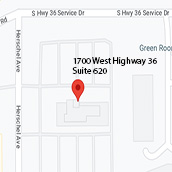How Often Can You File for Bankruptcy?
Technically, there are no limits as to how often you can FILE for bankruptcy. There is, however, a limit to how often you can be DISCHARGED from your debts. As discharge is usually the main goal of filing for bankruptcy, it helps to know the how often a discharge through bankruptcy is possible.
AFTER A CHAPTER 7 DISCHARGE
- To File Another Chapter 7: you must wait 8 years from the date you filed your previous Chapter 7 to receive another discharge
- To File Chapter 13: you must wait 4 years from the date you filed your previous Chapter 7 to receive another discharge
AFTER A CHAPTER 13 DISCHARGE
- To File Chapter 7: you must wait 6 years from the date you filed your previous Chapter 13 to receive another discharge. There is an exception: you can obtain a full discharge of your debts in a Chapter 7 bankruptcy, even if you file within 6 years, but you must have paid your unsecured creditors 70% or more during your previous Chapter 13 bankruptcy. But if you didn’t pay your creditors 70% or more during your previous Chapter 13, you will not be eligible for a discharge.
- To File Another Chapter 13: you must wait 2 years from the date you filed your previous Chapter 13 to receive another discharge. If you file within the 2 years, you will not be eligible for a discharge.
BANKRUPTCY DISCHARGE DENIED
If your bankruptcy discharge was denied, you may be able to file again. Be aware, however, that you might not be entitled to a discharge of the debts that were denied in your first filing.
DISMISSED BANKRUPTCY CASES
If your case was dismissed, then you may file again, unless the court prohibits you otherwise. In some cases, a 180-day waiting period may apply.
WHY FILE BANKRUPTCY IF DISCHARGE IS NOT AN OPTION?
Sometimes filing for a Chapter 13, even if discharge is not an option, can be an advantageous tool. A bankruptcy lawyer Phoenix, AZ recommends can tell you that in a Chapter 13 bankruptcy, you are able to make payments to trustee under a court approved payment plan. Usually the amount you pay under the payment plan is considerably less than what you’d pay to your creditors without it. So even if your debt is not discharged, a Chapter 13 payment plan can give you a bit of breathing room to straighten out or catch back up on your finances.
No matter the circumstance, it is best to consult with an experienced bankruptcy attorney. If you have filed for bankruptcy before and want to know what your options are; or if you are thinking about filing for the first time, contact Kamper Estrada, LLP. Our experienced bankruptcy attorney offers free, one-hour consultations to help advise you on your specific situation.
Thanks to friends Kamper Estrada LLP for their insight into bankruptcy.






